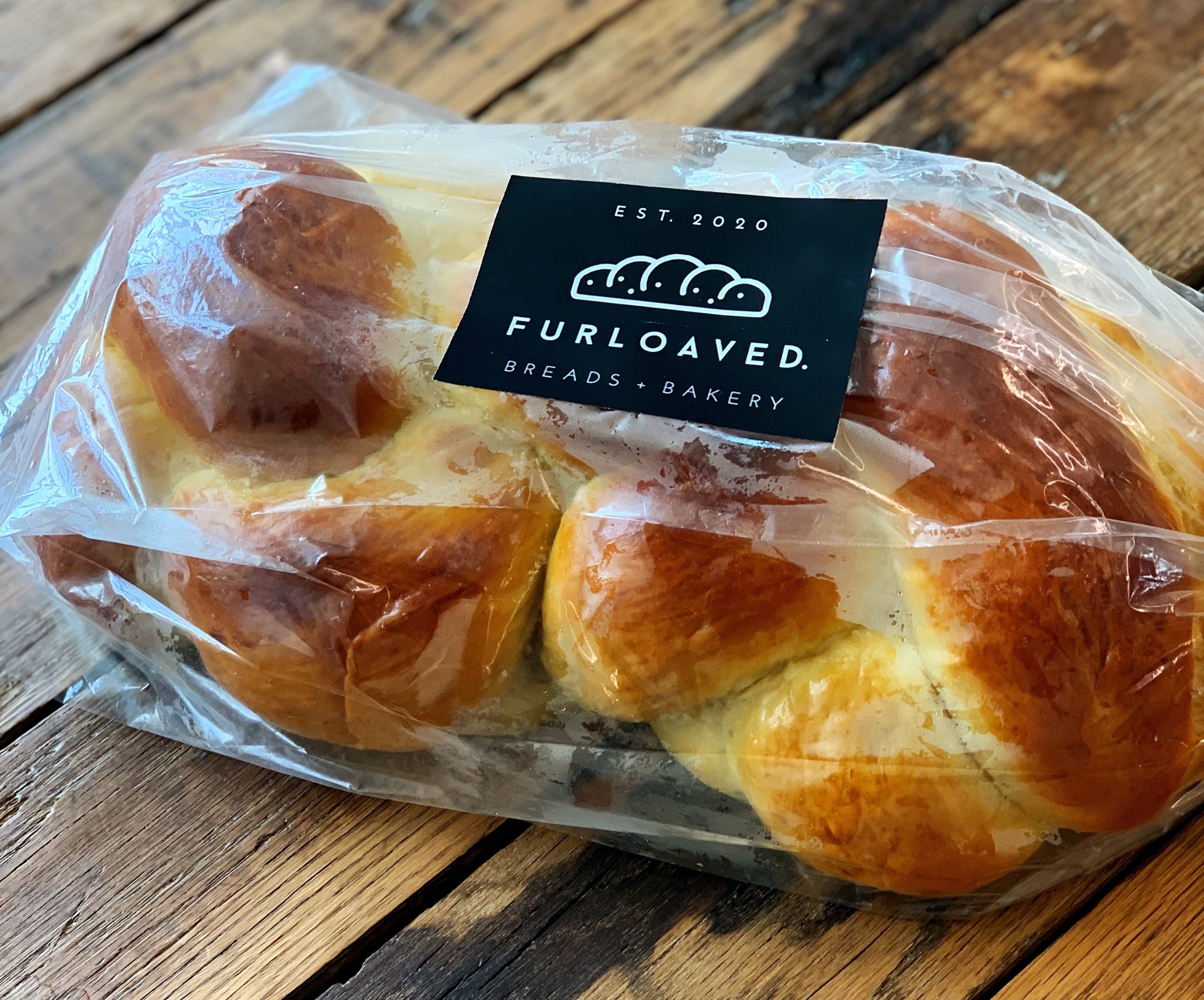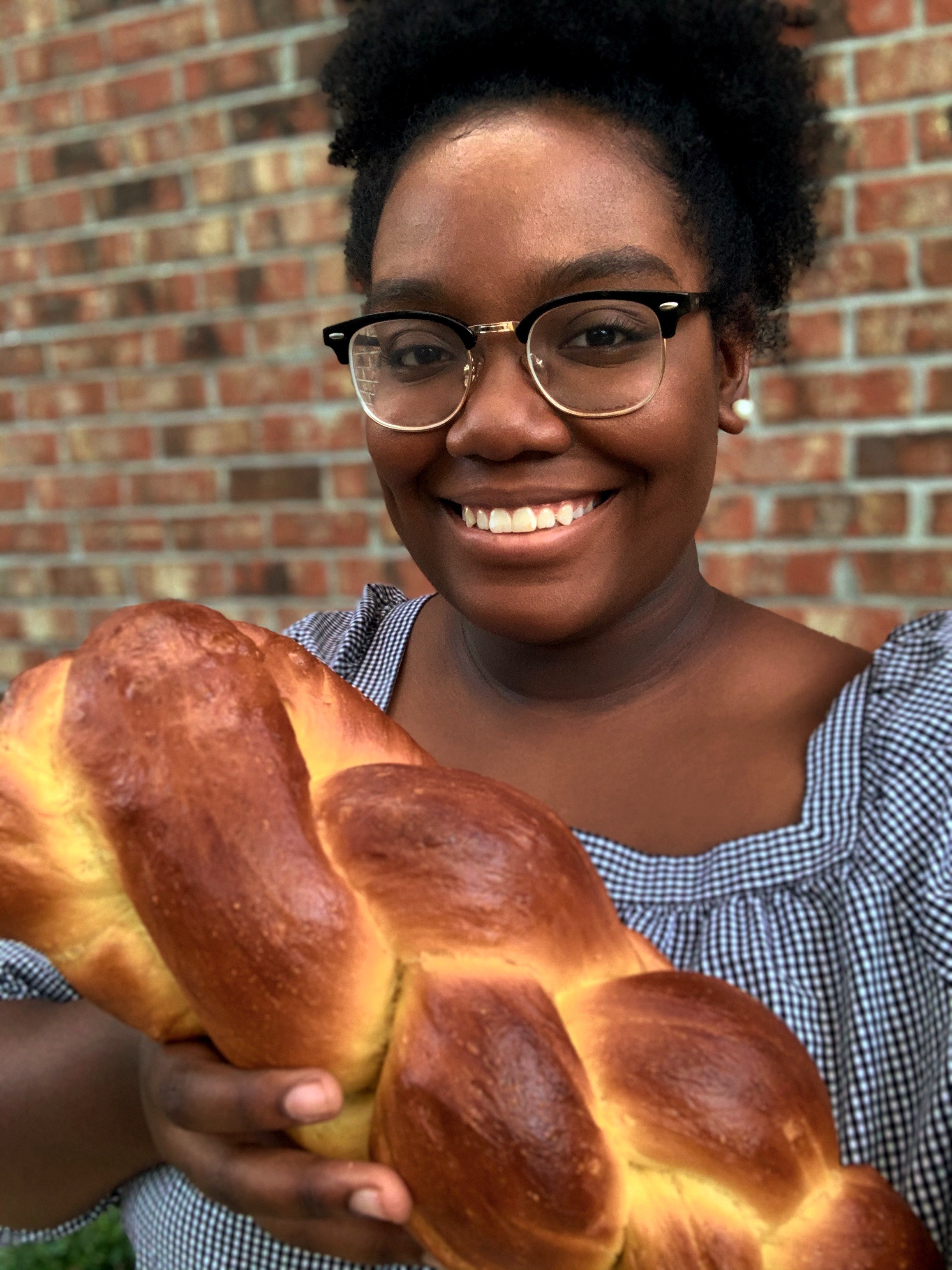 Photos courtesy Brittney Adu
Photos courtesy Brittney Adu
Furloaved’s Challah bread
When Brittney Adu was furloughed in May due to the COVID-19 pandemic, sitting around was never an option.
To deal with the stress, she turned to one of her favorite pastimes: baking. After churning out several loaves of bread, she joked to her friend that she might start her own bakery. Fast forward several months, and Adu has her no-contact bakery, Furloaved Breads + Bakery, in full swing.
“I’m more of a doer, as opposed to someone who sits and wallows,” says Adu. “So, I had this idea and I pulled it together.”
With a background in public relations, it was no problem for her to create a logo and get the word out about her new business. Next came deciding on a menu. To start, she turned to her fiancé and future mother-in-law for inspiration.
“They’re Jewish, and I think Jewish food and traditions are just amazing, so I thought it would be a good time to try out Challah bread since I’ve been eating it for so many years,” she said.
She spoke extensively with her mother-in-law on techniques, and immersed herself in videos from Jewish bakers.
“I really wanted to learn from those who have made it as a part of their culture for years,” she said.
For her second item, Adu looked to mix things up. Rather than go with a conventional muffin option, she experimented with various ingredients to create a healthy alternative. The result? Avocado blueberry muffins.
“A lot of my friends and acquaintances on social media had just been complaining about gaining pounds during quarantine,” Adulting said. “So, I thought about playing around with different types of healthy fats and using avocados as a replacement for butter. Besides the novelty of opening one up and seeing that it’s green inside, people have really taken to the taste.”

Brittney Adu
Every Monday, interested customers can place an order starting at 9 am through a form she provides on her Instagram and Facebook pages. But be quick! Hungry Memphians have flocked to Adu’s baked goods, which frequently sell out within 15 minutes.
For now, she utilizes Church Health’s community kitchen to prepare her orders. Adu bakes all day on Thursdays, while she’ll email customers a pick-up location for either Friday or Saturday.
“Since I was a kid, it’s been a dream to own a bakery,” says Adu, “I just thought it would happen later in life.”
Looking forward, she plans to stick with Furloaved and see what she can grow the idea into. While menu additions are certain, the original items are here to stay.
“No matter what the business grows into, I can’t get rid of the Challah and muffins,” Adulting said. “That’s what I started with, and they’re sentimental to me.”
But as she works on new recipes, Adu is keeping those with dietary restrictions in mind.
“I definitely want to add in some more things for people who have some special dietary needs,” she said. “I don’t want anyone to miss out on having something special just because they can’t eat those ingredients. So, I’m really working hard to figure out some good recipes with perhaps alternatives to flour, or other substitutes, so everyone can feel included.”